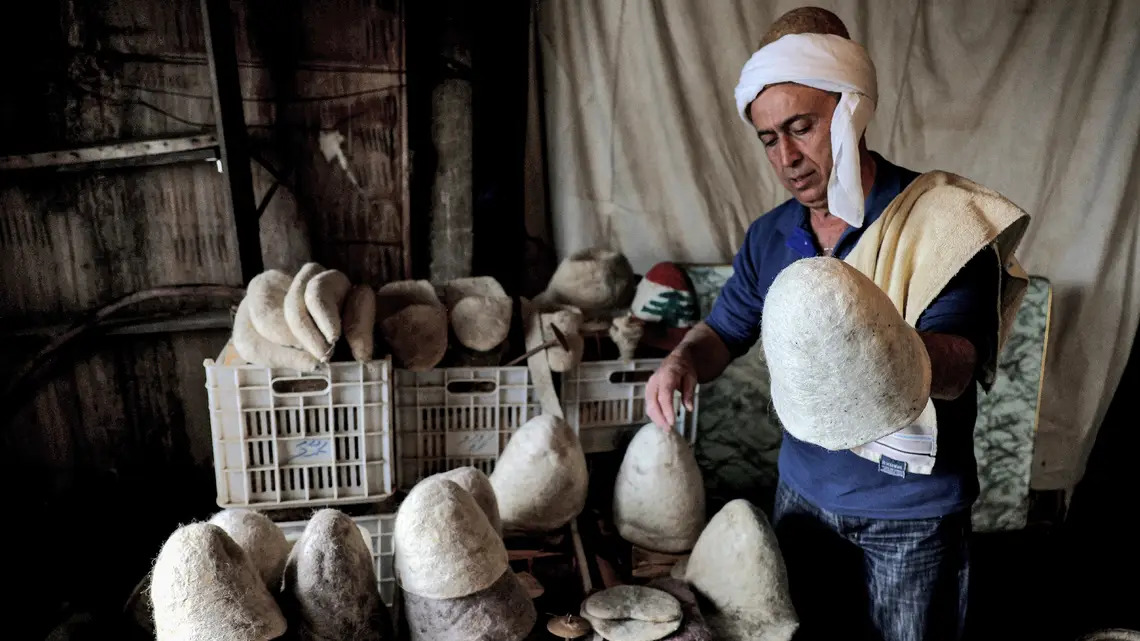Lifestyle
3.3.2023
The last hatmaker of Hrajel who’s preserving a Phoenician craft in the Lebanese mountains

Nestled in the rugged mountains of Lebanon lies the village of Hrajel. It is here, amidst the snowy peaks, that Youssef Akiki lives, a master in the ancient art of making traditional woolen caps, called “labbadeh”, which were once widely worn to protect oneself from the cold winter in the mountains of the land of cedars.
Akiki is a true believer in the ancient craft he practices. He has spent a lifetime perfecting his art and is now one of the last commercial manufacturers of this traditional headgear. While the village elders still make their own labbadehs, Akiki believes his are the only ones commercially available, and he takes great pride in preserving these age-old techniques.
A meticulous craft
Making a labbadeh is a meticulous process that requires patience, skill and attention to detail. It begins with the drying of the sheep’s wool in the sun. Once the wool is dry, the maker molds it with his hands using water and Aleppo soap, made from olive oil and extracts of bay leaves. This allows the wool to shrink and become malleable, like a paste.
As he works, Akiki’s hands reveal the roughness of years spent honing his craft. He creates each cap with great care, taking his time to ensure that each stitch is made to perfection. A single labbadeh takes a day to make, sometimes more, and he can only produce a maximum of three per day.
Voir cette publication sur Instagram
A business in crisis
Very few people wear the labbadeh even though it is very practical. Nowadays, those who buy them are mainly tourists or Lebanese who wish to find a piece of their childhood. Many buy them to display in their homes rather than to wear, and the lack of demand has weighed heavily on the trade. The hatter laments that the state is not doing more to support local artisans like him. “The state should guarantee us markets and exhibition spaces,” he told AFP. The income he earns from the hat business does not allow him to survive, he is also a farmer, especially since the economic crisis has hit Lebanon in recent years.
Voir cette publication sur Instagram
A centuries-old know-how
The craftsman believes that the design of the labbadeh has its roots in the hats worn by the ancient Phoenicians, although their style was more elongated. In order to attract more customers, he is experimenting with more modern designs. He also trains his nephews in the art of making these traditional caps, determined to preserve the know-how for future generations.
popular

